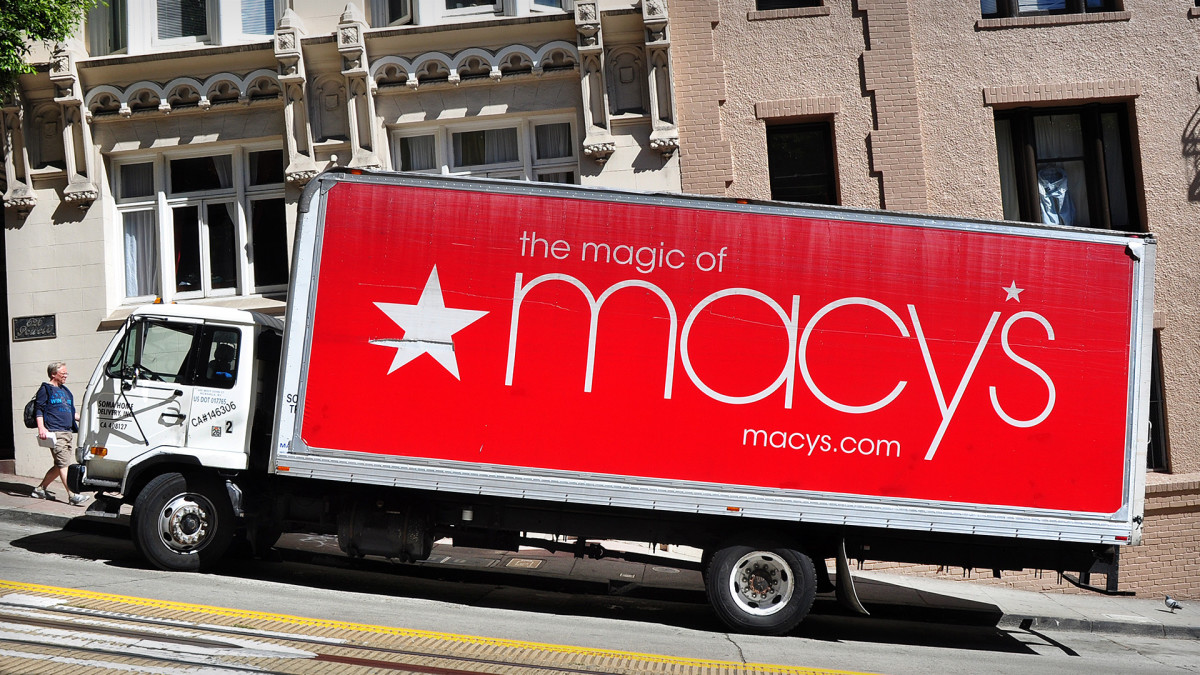The last round of the tariff serves as another bodily blow to the already combat category of business: a shopping center.
Not that people don’t visit centers. Data show that visits to the mall are small or a little down, depending on the quality of the market and time of the year.
Related: Main furniture company closes, no bankruptcy plans
There is no huge exodus from brick and mortar retail, but whether people have visited and buy them whether two very different things.
Traditionally, shopping stores have benefited from foot traffic to have so many stores in the same location. The problem is that, in addition to being able to buy what is ahead of you at a physical trade, most people can also only order their phone.
So, if you stood in a classic Mall store like GAP, Ann Taylor Loft, Express or Sidra Chain like JC Penny, Macy’s or Dillards, it’s much easier to just not buy.
💵💰Don’t miss the move: Subscribe to The Straet’s Free Daily Bulletin 💰💵
You are still going to the market center, and you still get a pen or a cup of coffee or one of those really big cookies with freezing on them, but you don’t really help traditional shopping malls.
These traders, many of whom sell clothes, have just got an extra blow that will sell most of the goods to the tariffs. That should be terrible news for the whole industry. Macy’s executive director thinks his company has a way about the problem.

Image source and colon; Robert Alexander & Sol; Getty
Macy’s has a tariff antidote
Macy has spent the last few years trying to correct her job and reverse the declining sale. This included stable closure to the worse performance stores.
Executive director Tony Spring, however, believes the chain has a hidden property he can use to protect his business from the influence of tariffs.
“Our private etiquette penetration is now reduced to all the time, so the opportunity to renovate work is favorable from the long -term perspective of marginal accumulation, but I also think that it is good at this time in time and protecting us or isolating us, there is little of us from some tariff uncertainty,” he divided.
Because Macy’s (M) He owns his brands of private labels, has flexibility where to produce them.
“I feel good about working on some brands. You know, you look at the brand like Style & Co or State of Day or to the power of brands like a hotel.
More about retail and bankruptcy:
- Closing a Walmart Store, auction from laptops and a flat -screen TV
- The Home Depot CEO sounds an alarm because of a growing problem
- Famous restaurant files for Chapter 11 bankruptcy
The chain, he noted, did not pay enough attention to all his private brands.
“There are other brands that have started more or need more work and rethinking. And so, I was yesterday with a team of a private brand, like autumn 2025. It looks spectacular,” he divided.
Macy is trying to roll with the blows
In a retail retail environment under the giant shadow of tariffs and a potential global trade war, whatever the company can really be skillful and willing to change.
“We recognize inflation pressure. Obviously, there were unexpected factors with fires and cold weather in the early quarter that affected the job results. But for the first quarter, you know, we expect that pressure to continue, and we are really focused on what we can control,” said CFO Adrian Mitchell.
Related: classic restaurant chain on late nights closing dozens of locations
The results have been encouraging so far.
“The good news is that the investments we invest in user experience are acting, and what we are doing now is scaling of these initiatives on most of our business,” he said.
Spring also added one final comment on the tariffs.
“You know, our stocks are in the first quarter in good shape. There will be no effect with the ongoing tariffs. As we look at the rest of the year, we use access to the case and try to react in real time as we find out more,” he said.
